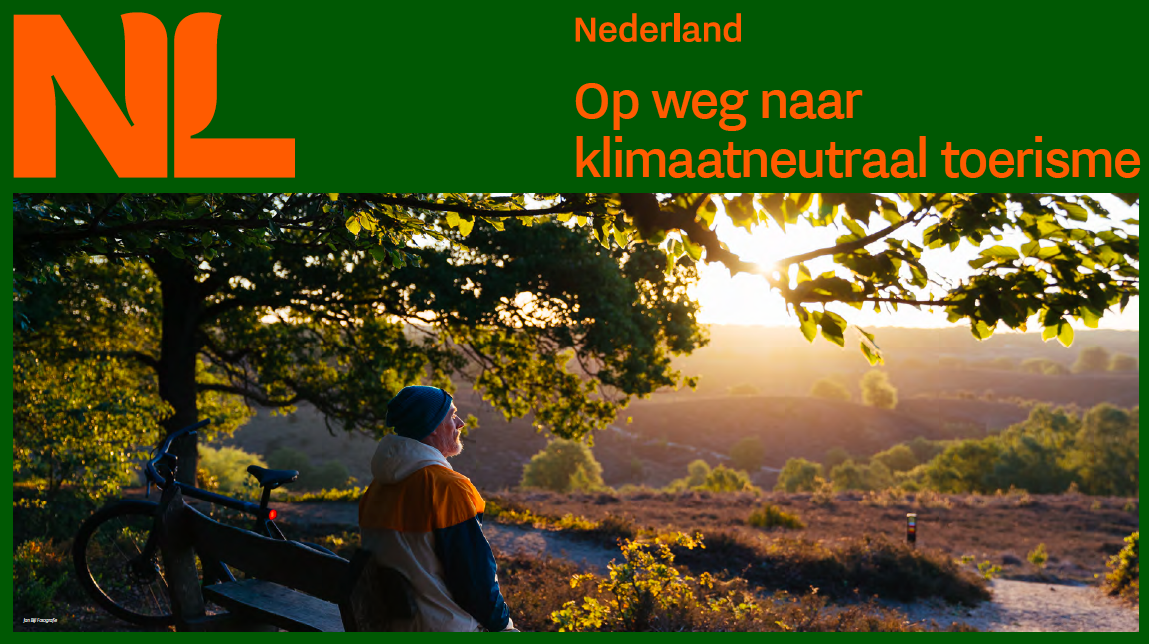Course document 'Towards climate neutral tourism' presented
The course document 'Towards climate neutral tourism' was presented at the Tourism Top 2022. This document describes opportunities and challenges toward a sustainable and climate-neutral future of tourism in the Netherlands. CELTH contributed to the course document. It also builds on the 'Research agenda for making Leisure, Tourism, and Hospitality more sustainable' that CELTH drew up this year.
In the course document 'Towards climate neutral tourism', the Climate Neutral Tourism Working Group outlines what the road to climate-neutral tourism might look like: what is the current situation, what needs to be done, and what actions must we take now, so that we can achieve the goals for 2030 and be able to reach 2050? To achieve climate-neutral tourism in the Netherlands, it is necessary to reduce emissions from all types of activities related to tourism. The course document is structured around the pillars of the Glasgow Declaration that was signed in 2021 by NBTC, CELTH, Merk Fryslân, and many other parties.
Getting Started with Stakeholder Coalitions
The fact that climate-neutral tourism in the Netherlands is not an easy task was evident from the 270 urgent questions that CELTH raised in the sector when compiling the research agenda on this theme. Both the subject matter and the sector are diverse and complex. This makes it impossible to lay down one plan for the entire sector, within which everyone can simply take their action from their existing role. The initiators of the policy document have solved this by setting up so-called coalitions of stakeholders with a common vision and ambition. In this way, every sector can start working on the road to climate-neutral tourism at its speed and themes.
Common Goals
The sector as a whole must work on providing insight into the CO2 emissions of entrepreneurs and provide knowledge on how to reduce them. Much is devoted to reducing emissions from transport to and in the Netherlands and making accommodations and recreational facilities more sustainable. Tour operators play an important role in the transition between supply and demand. To realise all this, financing and support for entrepreneurs are important. An area-oriented transition is desirable in this regard. The goals for climate-neutral tourism can only be achieved if the sector works together and shows leadership.
Risks
The course document also mentions several risks that can slow down or frustrate the process. These relate to (too) great confidence in innovations that can solve climate problems, delaying cooperation structures, and the discrepancy among both consumers and entrepreneurs between the importance of the theme and taking action.
Who picks up the glove?
Finally, major themes such as climate change require actions and collaborations that do not necessarily fit the role that organisations currently have. The working group clearly sees that something must be done, but who should do what and especially who should pay for this are major issues. This slows down the process. To remove that delay, we all need to look at our own role and our own actions. Leadership, guts and transparency are essential for this. In any case, CELTH will pick up the glove and will be happy to work with you to solve the 270 questions from the research agenda. Are you in?
Read more or participate: https://www.nbtc.nl/nl/site/artikel/koersdocument-op-weg-naar-klimaatneutraal-toerisme.htm



